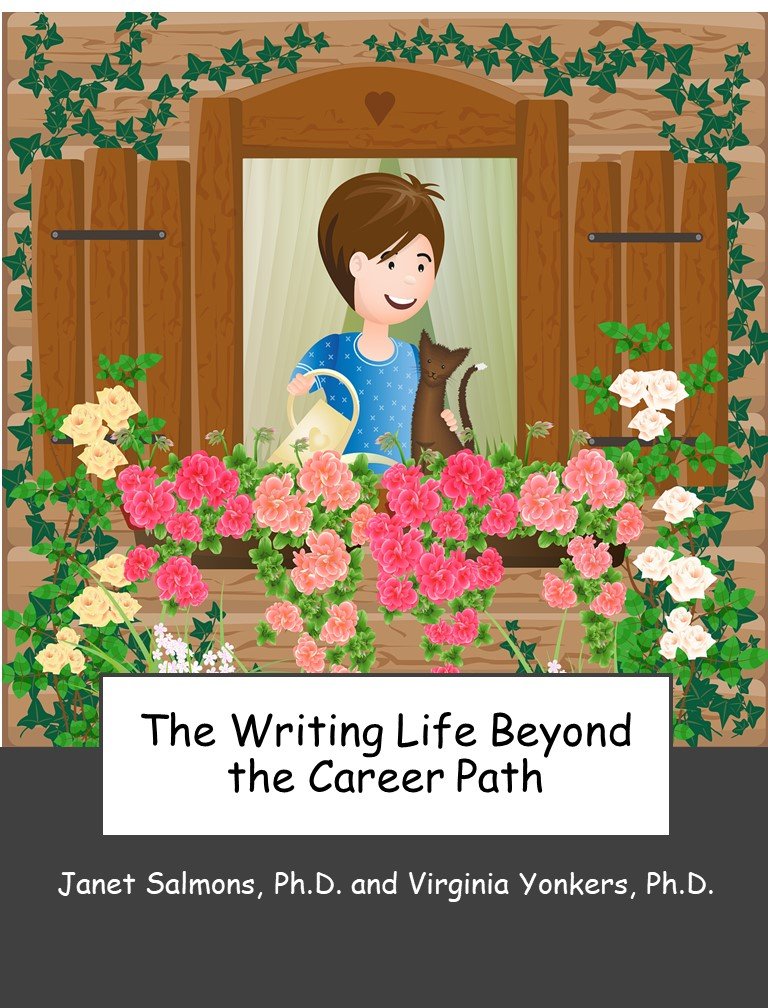Develop Your Voice as an Academic Writer
by Janet Salmons, Research Community Manager for SAGE Methodspace
Dr. Salmons is the author of Doing Qualitative Research Online, which focuses on ethical research and writing, and What Kind of Researcher Are You? which focuses on researcher integrity. With the code MSPACEQ322 you receive a 20% discount when you order the books from SAGE. Valid through September 30.
The APA Publication Manual tells us:

The prime objective of scientific reporting is clear communication. You can achieve this by presenting ideas in an orderly manner and by expressing yourself smoothly and precisely. Establishing a tone that conveys the essential points of your study in an interesting manner will engage readers and communicate your ideas more effectively. … In describing your research, present the ideas and findings directly, but aim for an interesting and compelling style and a tone that reflects your involvement with the problem. (VandenBos, 2010, pp. 65-66)
The APA Manual and other guides can instruct us on the mechanics of academic style, but how do we learn to develop a tone and compelling style that is acceptable to editors and professors yet retains our original stamp? Adrian Holliday, author of Doing & Writing Qualitative Research, observes that academic writers have a particular dilemma: we must balance extensive reference to others' work with our inclusion of own perspectives. We need to demonstrate our knowledge of prior published literature about the topic at hand, while at the same time explaining our own ideas, experiences, and critical insights.
Despite these challenges, Holliday argues that “there is a place for powerful, personal authorship” in scholarly writing (Holliday, 2016, p. 127). Similarly, Ken Hyland observes that “academic writing… is an act of identity: it not only conveys disciplinary ‘content’ but also carries a representation of the writer” (Hyland, 2002, p. 1092). How do we represent ourselves, while situating our work within the academic conversation of our respective fields?
See the linked resources here and share your strategies for developing a scholarly voice.
Holliday, A. (2016). Doing & writing qualitative research (3rd ed.). Thousand Oaks: SAGE Publication. See Holliday - Doing & Writing Qualitative Research - Chapter 6)
Hyland, K. (2002). Authority and invisibility: Authorial identity in academic writing. Journal of Pragmatics, 34(8), 1091-1112. doi: https://doi.org/10.1016/S0378-2166(02)00035-8VandenBos, G. R. (Ed.) (2010). Publication manual of the American Psychological Association (6th ed.). Washington, DC: American Psychological Association.
Voice in Academic Writing handout from the University of Melbourne
Scholarly Voice: Overview from the Walden University Writing Program
Academic Writing resources from the Online Writing Lab (OWL) at Purdue University
Contribution and Voice in Academic Writing from Rachael Cayley's Exploration of Style blog
Writing Across the Academic Life-Span (click for 30-sec clip) from the Textbook and Academic Authors Association
Academic voice: On feminism, presence, and objectivity in writing by Kim Mitchell
More Methodspace posts on academic writing
Deaf scholars are flipping the script in academic publishing—highlighting the power of signed languages, challenging outdated views, and creating space for real representation through the Society of American Sign Language Journal.
Creating an effective abstract is often challenging yet crucial. With 250 words or fewer, authors must make strategic decisions about what to include and exclude, while delivering a clear and focused message that outlines the content of the manuscript. This blog entry illustrates how S.M.A.R.T. principles (specific, measurable, achievable, relevant, and time-bound) can assist academic writers in crafting clear, concise abstracts for manuscripts and research papers.
In this post Dr. Mazak discusses how to manage the writing process for a large project such as a dissertation, thesis, or book and offers resources to help new or experienced writers.
This post includes tips about writing qualitative proposals excerpted from Research Design by Creswell and Creswell.
Don’t get caught by predatory publishers!
Celebrate Academic Writing Month 2023 by getting organized! Find open-access resources to help you avoid being distracted by details and lost files.
Sometimes taking a break from the keyboard to write by hand unleashes creativity.
Maria Lahman offers tips to help you hone your academic writing
Find tips that will help you hone your writing.
Get ready for #AcWriMo! Find a checklist that will help you overcome obstacles that keep you from making progress with academic writing.
This must-read article in The Scholarly Kitchen caught my attention: “Who Is Going to Make Money from Artificial Intelligence in Scholarly Communications?” See this thought-provoking interview with the author, Joseph Esposito.
All the posts for Academic Writing Month 2022 are here on one page!
Learning while doing: collaborating on a book about collaboration.
Ethical decisions are present throughout the process of academic writing and publishing. This collection of open-access articles offers insights about some of the issues writers face.
Dr. Boyd was a panelist for the webinar, How Academic Writing Coaches Get Unstuck. In this post she responds to a question posed by an attendee: “How do you find a writing group?
In this podcast panelist Leslie Wang discusses “All About Writing Groups” and offers practical tips for organizing your own.
What do academics write when they are free from institutional constraints about what they can publish? See this post and conversation with Janet Salmons and Virginia Yonkers.
Dr. Boyd was a panelist for the webinar, How Academic Writing Coaches Get Unstuck. In this post she responds to questions posed by attendees: “How do you get unstuck in writing when someone's negative, hypercritical, or just mean feedback has gotten you stuck?” and “How do you balance or sustain your writing with all the imposter syndrome thoughts coming at you?
Dr. Boyd was a panelist for the webinar, How Academic Writing Coaches Get Unstuck. In this post she responds to questions posed by attendees: “How do you get unstuck in writing when someone's negative, hypercritical, or just mean feedback has gotten you stuck?” and “How do you balance or sustain your writing with all the imposter syndrome thoughts coming at you?
Since I am advocating for ways to stay engaged with writing, drifting may seem a strange interlude. Yet, I find drifting to be a vital companion state to writing. For me, usually drifting occurs when I have set aside all devices and am absorbed in some wholly different task, such as gardening, chauffeuring or waiting for children, or simply watching birds congregate at the feeder.
Where do you start when the blank page is staring at you? Answer these key questions to get started!
Find coming events and recordings of past webinars in this series about getting published.























Michelle Boyd answers a question about taking small steps to make progress on a large writing project.